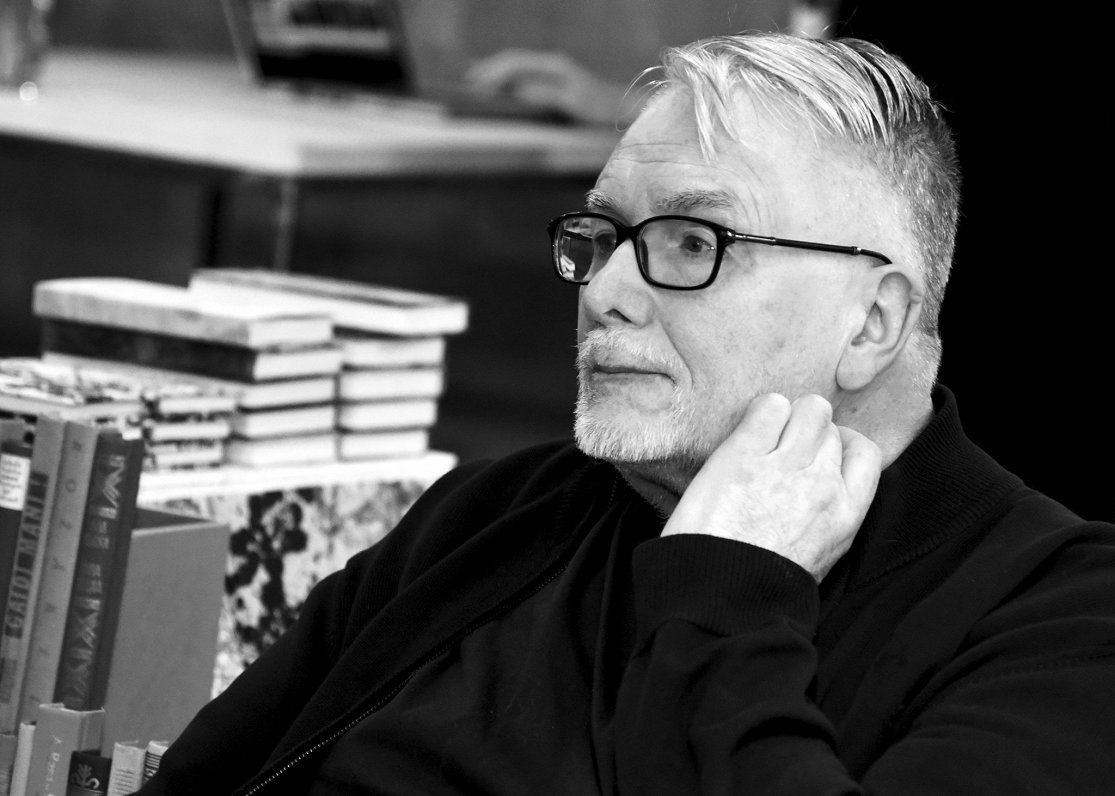He was a man – a whole cosmos – and went through life and literature, making huge waves. Now the sea of life of the poet, cooler and translator Ulža Bērziņš has subsided. His contribution to poetry and the translation of the cornerstones of world literature is invaluable and difficult to comprehend, but it is difficult for people who knew him to believe that the vital, complex mind, which is familiar with the substance of language, is no longer there.
He lived and breathed in language, Uldis Bērziņš had nothing more important. Having translated and cooled from Germanic, Turkish, Iranian, Hebrew, Scandinavian and many other languages, Uldis Bērziņš believed that the Qur’an, the ancient Icelandic mythological “Songs of Edda” and the Spanish literary monument “Song for My Side” should be read in Latvian.
“I want my people to have it all, and I want it all – that means the Qur’an, the Bible and all those cultural monuments of the world to be in the most beautiful way possible.
and he saw it as his goal and persistently and completely uncompromisingly did it, did and donated absolutely everything to it, ”said Andris Konste, the head of the International House of Writers and Translators.
Uldis Bērziņš came to poetry quite late. Although the first poems were published in the mid-1960s, the first poetry book “Monument to the Goat” was published only in 1980, when Uldis Bērziņš was 36.
The poet Maris Salējs said about his creative colleague:
“The center of his existence was language, the reality of language and he did not distinguish, he did not have such a dividing line that it is poetry and it is reality and yes, everything was important to him, but at the center was the existence of language and language.”
The poet Kārlis Vērdiņš was the editor of the last selection of Bērziņš poetry “Idilles”, for which the Latvian Literature of the Year Award was received in 2019. But long before that, the peculiar and dense poetics of Ulža Bērziņš’s poetry surprised with its modernism.
“He discovered quite early on his special style of writing poetry, which is epic, consisting of the coexistence of different times and spaces, actively working with various registers of the Latvian language, from jargon and everyday speech, even vulgarism, to the Bible and other the terminology and imagery of the scriptures, and it is such a great cosmic space in which everyone who distinguishes his poetry is invited, ”Vērdiņš pointed out.
Although Uldis Bērziņš is almost literally stuck in the language, he himself said that poetry and cooling are not a world of young ladies and fine young men.
I wouldn’t call it fine substances, it’s actually quite a rough, heavy, “crushed” substance and also a tasty sigh, a pleasure, a reality for me. (..) But language, what is related to language is as rude and difficult as existence itself, ”said Bērziņš.
He was very simple and respected all the people, he enjoyed talking and watching people. And it was in his simplicity that Uldis Bērziņš was such a personality that comes once a century.
“He was one of those who knew what no man in the world knew and did not know what everyone knew, because what was in his head was such a vast space, such a large parade of planets that we could hardly have them. even scale, ”said Konste.
–
Highlight text and press Ctrl+Enterto send the text to be edited!
Highlight text and press Report a bug buttons to send the text to be edited!
–
–

